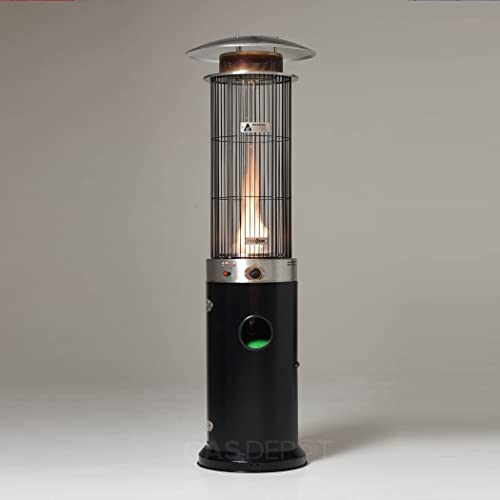What Is Gas Heaters And How To Utilize What Is Gas Heaters And How To Use

Understanding Gas Heaters: A Comprehensive Guide
Gas heaters are an essential element of numerous homes, supplying heat and convenience during the cooler months. With mouse click the up coming web site of gas heaters offered, comprehending their performance, advantages, and precaution is essential for users. This article supplies a helpful overview of gas heaters, how they work, and addresses often asked questions on the topic.
Understanding Gas Heaters
Gas heaters operate by burning gas or propane to produce heat. They are utilized to warm indoor areas and are frequently considered more efficient than electrical heaters. The primary kinds of gas heaters include:
Types of Gas Heaters
| Type | Description |
|---|---|
| Natural Gas | Linked to a gas line and offers constant heat supply. |
| Propane | Utilizes propane tanks, making it suitable for areas without gas lines. |
| Unvented | Burns gas without a vent system, appropriate for well-ventilated spaces. |
| Vented | Expels combustion gases outside, ideal for maintaining indoor air quality. |
Each type has its distinct advantages and applications, making them appropriate for various environments and preferences.
How Gas Heaters Work
Gas heaters normally utilize a combination of burners, heat exchangers, and blowers to distribute heat efficiently. The process generally includes:
- Ignition: Natural gas or propane is sparked either by means of a pilot burner or an electronic ignition system.
- Combustion: The gas burns, developing heat which is then moved to a heat exchanger.
- Heat Distribution: A blower or fan disperses the heated air throughout the space, developing a comfy environment.
- Exhaust: In vented systems, exhaust gases are expelled outside, keeping security and avoiding poisonous accumulation inside your home.
Advantages of Gas Heaters
Gas heaters use different advantages that make them a popular choice for heating areas. A few of the key benefits include:
- Energy Efficiency: Gas heaters generally supply more heat per unit of fuel compared to electric heaters, making them an economical heating alternative.
- Rapid Heating: They warm up spaces rapidly, providing instant heat when switched on.
- Eco-friendly: Natural gas is cleaner than coal and is considered a more eco-friendly choice than electric heating in lots of areas.
- Dependability: Gas heaters can continue to operate during power outages, ensuring ongoing convenience during severe weather.
Downsides of Gas Heaters
While gas heaters have many benefits, there are also some drawbacks to consider:
- Installation Cost: The initial setup cost for gas lines or propane tanks can be high.
- Security Risks: There are inherent threats related to gas leakages and carbon monoxide poisoning, demanding careful setup and upkeep.
- Space Requirements: Some types of gas heaters (especially vented ones) require considerable space for installation and exhaust systems.
Upkeep Tips for Gas Heaters
Appropriate upkeep is important for guaranteeing the security and performance of gas heaters. The following ideas can assist maintain optimum efficiency:
- Annual Inspections: Have a certified technician inspect the gas heater yearly to look for leaks and ensure appropriate functionality.
- Clean the Heater: Regularly clean the heater and surrounding location to prevent dust build-up, which can impact performance.
- Check Vents: Ensure that all vents are unblocked and operating properly to avoid buildup of hazardous gases.
- Monitor for Smells: Any unusual smell, especially gas, must be resolved instantly by getting in touch with an expert.
Frequently Asked Questions about Gas Heaters
Q1: Are gas heaters safe to utilize indoors?
Yes, gas heaters can be safe for indoor use as long as they are effectively installed and maintained. Vented gas heaters are especially safe since they expel combustion gases outside, lowering the threat of carbon monoxide gas poisoning.
Q2: How can I tell if my gas heater has a gas leakage?
Indications of a gas leak include a foul smell resembling rotten eggs, hissing sounds, and dead greenery around the area. If you believe a gas leakage, it is essential to evacuate the facilities instantly and contact your gas provider.
Q3: Do gas heaters require a source of power?
A lot of gas heaters do not need electricity to operate, especially those that count on gas. Nevertheless, models with fans or electronic ignition systems will need a power supply.
Q4: What should I do if I smell gas near my heater?
If you smell gas, you should right away leave the area, avoid utilizing any electrical devices, and call your gas provider or emergency situation services from a safe range.
Q5: What is the life-span of a gas heater?
Generally, gas heaters have a lifespan of 10 to 15 years with proper maintenance. Routine evaluations can help extend their functional life.
Gas heaters can be an efficient and reputable method to keep homes warm and comfy during winter months. Their different designs and benefits cater to various requirements and preferences. However, understanding their performance, prospective safety concerns, and upkeep requirements is important for any homeowner considering or currently using gas heating. By following finest practices and staying informed, users can enjoy the warmth and performance of gas heaters for years to come.

